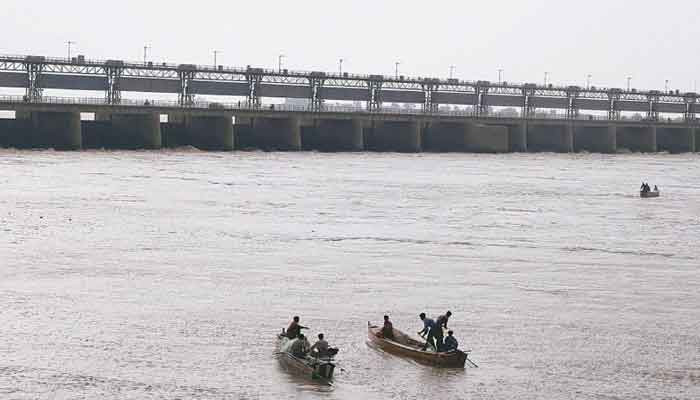Punjab Seeks Fair Water Distribution from IRSA, Accuses Sindh of Excess Usage
The Punjab government has formally requested the Indus River System Authority (IRSA) to ensure an equitable allocation of water among all provinces. The request alleges that Sindh province has been improperly extracting water, which Punjab contends is a clear breach of the agreed-upon distribution.
In a formal communication dated April 9, 2025, the Punjab government stated that IRSA had declared a 43% water shortage for the early Kharif season of 2025, which resulted in an allocation of only 6.702 million acre-feet (MAF) for Punjab. The provincial government voiced concerns that this considerable decrease could jeopardize water availability and negatively impact agricultural yields.
Authorities were contacted to get a statement from Irsa regarding the issue.
According to the Punjab Irrigation Department, the operational protocols for the JC Zone during the early Kharif season of 2025 have been reassessed. To ensure that the dam is 60% full by June 30, 2025, releases from Mangla Dam will be capped at 8,000 cusecs.
However, Punjab is reportedly struggling to obtain its proper water allocation. The province claims that Sindh has been taking more than its allotted share, which worsens Punjab’s water shortage, in spite of the declared scarcity.
Concerns have also been expressed regarding the correctness of water distribution due to allegations of underreporting at Sindh’s barrages. The Irrigation Department has implored Irsa to guarantee accurate and open reporting from each of Sindh’s barrages and to closely monitor water shares all through the early Kharif season.
Punjab has also formally requested that the CJ and TP link canals be used so they can get their fair share of water from the Indus River.
According to the letter, the water situation in Punjab has gotten so bad that it is endangering widespread unrest and economic misery.
The letter further stated that the situation calls for immediate and conclusive action to reevaluate shares, guarantee open reporting, and stop unwarranted downstream Kotri releases.
Punjab’s primary demands included requesting Irsa to guarantee a fair and open allocation of water among the provinces.
Moreover, Punjab’s allocated portion of water ought to be supplied on time and in full. The CJ and TP link canals ought to be run strictly per Punjab’s instructions. Irsa ought to look into and address the underreporting of water discharge at Sindh barrages.
The Irrigation Department emphasized that prompt action from the authorities is required to avert a worsening of the water situation in Punjab.
Irsa declared a shortage of 16% for both Punjab and Sindh at its Advisory Committee Meeting for Rabi 2024–25. Sindh province, however, received canal water delivery with a 19% deficit by the conclusion of the Rabi 2024–25 season, while Punjab received canal water supply with a 22% shortage.
Furthermore, Irsa made no plans to provide water downstream of the Kotri barrage for the whole Rabi 2024–25 season.
In spite of Punjab’s severe lack of canal water, the Sindh Irrigation Department released 0.470 MAF of water below the Kotri barrage.
In addition, an Irsa representative visited the Sindh barrages on February 15, 2025, and discovered that the Rice Canal was operating at 936 cusecs, but the Sindh Irrigation Department had declared the canal to be “closed” on that same day.
Furthermore, against the reported discharge of 950 cusecs, the Dadu canal was flowing at 1,226 cusecs, representing yet another 276 cusecs discrepancy.
Punjab has declared that each of the aforementioned facts makes it very evident that Sindh is both utilizing surplus water and underreporting at its barrages, which has a direct impact on the share of other provinces, especially Punjab, as Punjab and Sindh are the only provinces that experience canal water supply shortages.



Comments (0)
No comments yet. Be the first to comment!
Leave a Comment